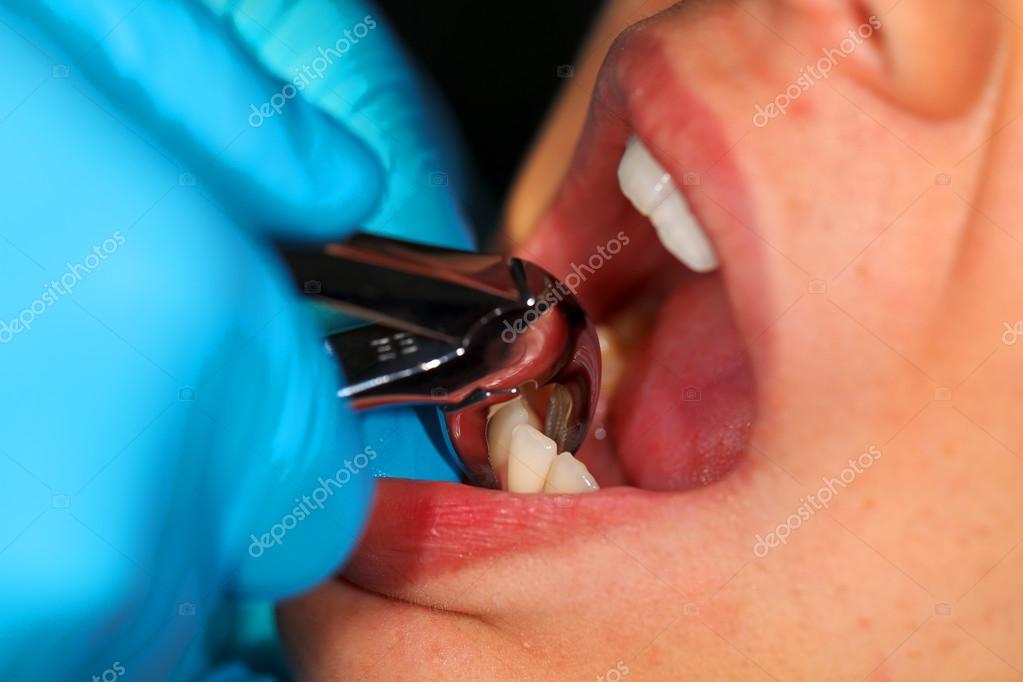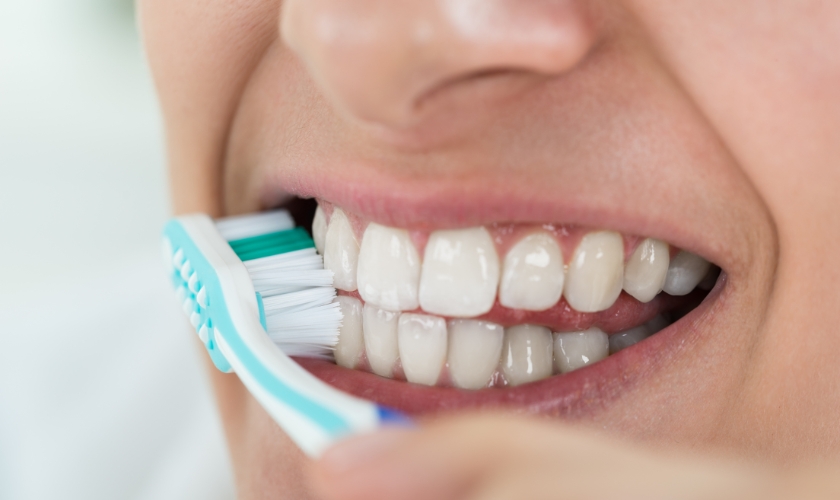New Patients Welcome!

Even though teeth are meant to be permanent, tooth extraction is a relatively standard procedure for adults. To determine whether or not someone needs to get a tooth pulled, here are some reasons why they may need to:
- A decaying or infected tooth
- An infection of the gums
- Traumatic injury
- Tooth crowding
The following information will help you understand tooth removal and what to expect afterwards.
PROCEDURE FOR EXTRACTING A TOOTH

Your dentist or oral surgeon will schedule an extraction for you.
An anesthetic is injected into your mouth at the beginning of the process to prevent pain. However, you will still be aware of your surroundings throughout the procedure.
To remove a tooth from your child, or if more than one tooth is being removed, a solid general anesthetic may be used during the procedure, depending on your child’s age. In other words, the whole procedure will take place while you or your child is sleeping.
When your dentist performs a simple extraction, an elevator device will be used to rock the tooth back and forth until it becomes loose, and then the tooth will be removed. Once the tooth has been removed, they will use dental forceps to remove the rest of the tooth.
IMPACTED TEETH OR MOLARS
A surgical extraction may be necessary if the tooth is impacted (i.e., it sits below the gum line) or if you’re removing a molar.
There are situations where a surgeon will perform an extraction of a tooth after making an incision in the gum and bone tissue surrounding the tooth. As the tooth is handled, it is rocked back and forth using forceps until it finally breaks away from the gum.
There will be pieces of the tooth removed if the tooth extraction is complicated. Surgical extractions requiring more complex techniques are more likely to be conducted under general anesthesia.
Blood clots are usually formed in the socket after the tooth is removed. Your dentist or oral surgeon will apply a gauze pad to stop the bleeding. A few stitches may also be required in some cases.
AN EXTRACTION’S AFTERCARE
You should expect to heal within 7 to 10 days, no matter what type of extraction you had and where your tooth was located. Blood clots in tooth sockets must be kept as long as possible. In the case of dislodging, the socket may become dry, causing pain.
Speeding up healing can be achieved in several ways:
- Follow the directions on the prescription for painkillers.
- The initial gauze pad should be left on for 3 to 4 hours.
- In the immediate aftermath of the procedure, apply ice to the affected area for 10 minutes at a time. Too long the use of ice packs can damage tissues.
- The next few days should be spent resting following the operation.
- In the first 24 hours following surgery, avoid rinsing, spitting, or using a straw.
- Using warm water and half a teaspoon of salt, rinse your mouth after 24 hours.
- Don’t smoke.
- Pillows can prolong healing when you sleep flat.
- Keep your teeth clean by brushing and flossing, but avoid the extraction area.
AFTER YOUR TOOTH IS EXTRACTED, WHAT FOODS SHOULD YOU EAT?
It is important to eat soft food during the healing process, such as the following:
- soup
- pudding
- yogurt
- applesauce
The smoothie can be consumed with a spoon, but you must drink it straight from the container. The soft foods diet should be maintained for one week after your extraction, as you can incorporate more solid foods into your diet as your extraction site heals.
IN CASE OF TOOTH EXTRACTION PAIN, HOW TO MANAGE IT
There is a good chance you will be uncomfortable, sore, or in pain following your extraction. Your face may also be swollen.
This pain will be relieved by the painkillers your doctor prescribes. Additionally, several over-the-counter medicines may also be prescribed by your doctor.
If your discomfort does not subside within two or three days of the extraction, it may be time to consult your dentist. You must call your dentist immediately if you suddenly feel worse several days later to rule out a possible infection.
AN OVERVIEW
Most likely, you will be able to resume your regular diet after a healing period of one to two weeks. The extraction site will also grow new bone and gum tissue. Missing teeth can, on the other hand, cause teeth to shift, causing your bite to be affected as a result.
You may want to discuss replacing your extracted tooth with your doctor to avoid this from happening in the future. Implants, fixed bridges, and dentures are all options for restoring missing teeth. For more details, dentist ventura ca.





